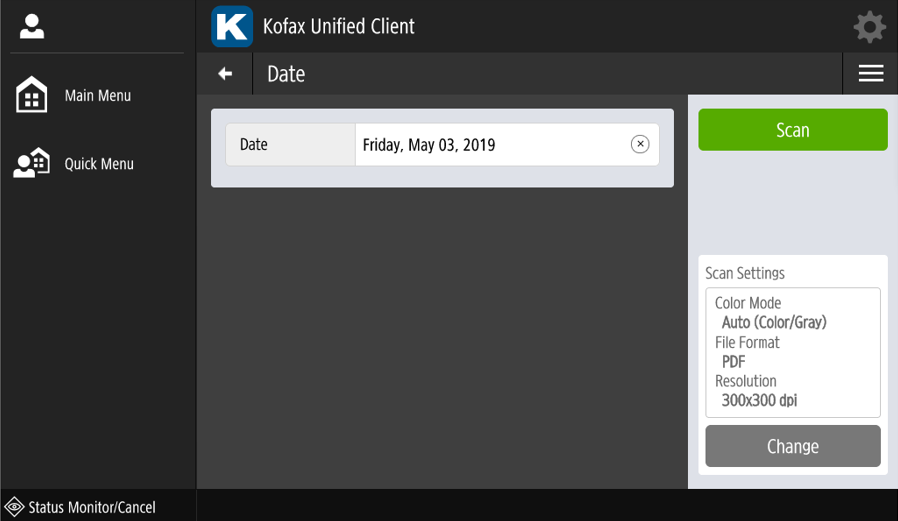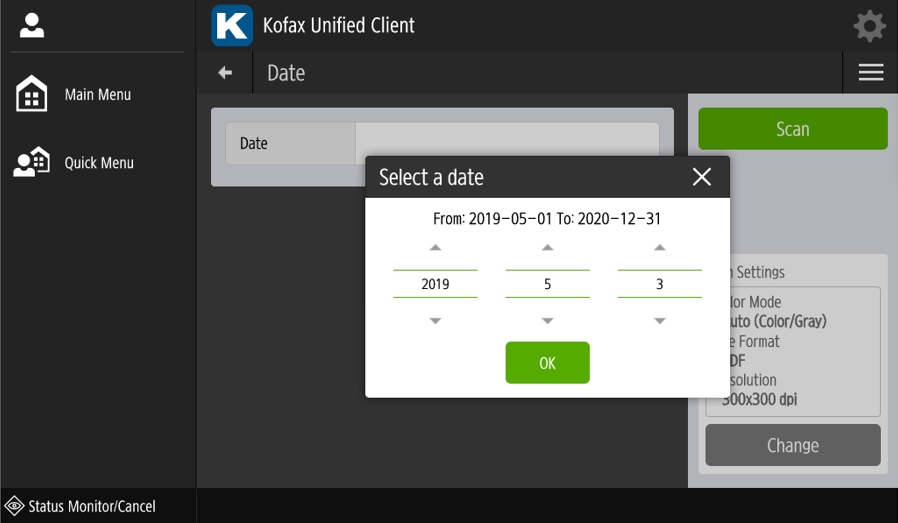Date field
The date picker can be used to enter dates. Various formats of display are supported
depending on the server configuration. The format on picker field is always Year - Month
- Day. 
When using long (text) formats, month and day names will be localized according to the set
language on the device for supported languages. With a date range enforced the date picker
will not let you enter a date outside of the range. If you try to go outside of the range,
the date picker will display the highest/lowest date possible depending on the direction
you are trying to go.
